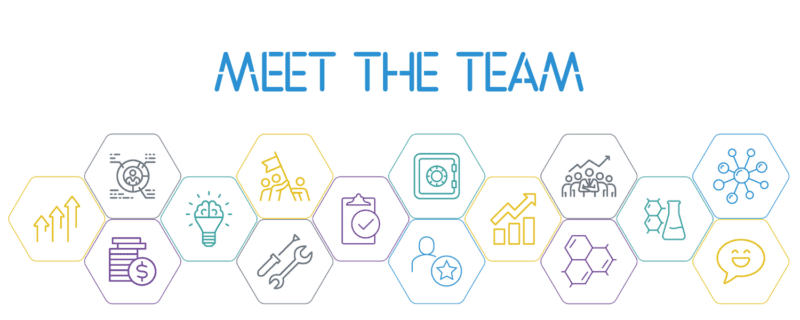
Fuel Markers – Solving a $100 Billion Problem
ShareFuel Markers and Fuel Fraud
Fuel fraud is a global issue that affects most countries around the globe, in some shape or form. It is sometimes dismissed as an issue which only happens in non-OECD countries; where less developed fuel infrastructure, looser fuel regulations and the high relative cost of fuel gives an incentive for fraudulent activity to happen.
However, this could not be further from the truth. It is estimated that at least 10% of the worlds fuel sales are fraudulent, with massive consequences to tax revenues, fuel brand owners, the environment and society in general. We know first-hand that adulterants have even been found in premium fuels in the EU and UK, which are often seen as the benchmark for maintaining supply chain security and preventing fraud.
Governments and oil majors are doing their part to frustrate the activities of fraudsters, but the scale of the problem means that there is much more to do. In many parts of the world, stakeholders are using fuel markers to secure premium and high value fuels against the threat of fraudulent activity.
A fuel marker is a chemical compound which is compatible with a wide array of fuels and can be detected within the fuel supply chain using specialist detection equipment and testing techniques. Results from testing help to determine whether the tested sample is legitimate or whether it has been diluted, adulterated or is completely counterfeit, with a high degree of accuracy.
A marker used in tandem with automated methods of data collection is an essential tool for the tracking and monitoring the quality of various fuels and biofuels.
But why do we need to check for this in fuels? To answer this, we need to look at the global fuel market and some of the challenges it faces.
An Invisible Global Problem
The word fraud is defined as wrongful or criminal deception intended to result in financial or personal gain. In the context of the fuel industry, this can refer to an extensive list of fraudulent activities; committed by individuals, companies, or organized crime groups.
Examples of problems arise with states not actively appreciating the scope of the issues faced and by not prioritizing solutions to confront it. This has led to several opportunities for fuel fraud such as: adulteration, smuggling, fuel theft, piracy and some even closely related to drugs, gangs, and terrorism.
For context, examples of these are described in detail below.
Adulteration
Specific cases of adulteration occur globally, however siphoning and adulteration have been a recurring problem in Uganda since 2005. Reports have shown that in the late 2000’s, fuel coming into Uganda from Kenya had been siphoned on entry and the remaining fuel was topped off with water or kerosene before entering the domestic market.
In late 2009, it was estimated that 29% of all fuel introduced to the Ugandan market was adulterated. This highlights the point that without an understanding of the problem by the state, things can get seriously out of hand. The government then had no choice but to introduce a fuel marking programme which has since helped reduce that figure dramatically.
The success of not only the marking programme but the collaborative efforts in understanding the adulteration problem was portrayed by the supervisor of the Uganda National Bureau of Standards (UNBS); Peter Kitimbo, who stated that the percentage of adulterated fuel on the market had dropped to 5% in 2015.
Today, the quality of fuel compliance in Uganda now stands at 99%, and where there is adulteration still occurring, there is a collaborative effort within the country to face up to fuel fraud.
Smuggling
Whenever there is an opportunity to bring low-priced goods into a higher-priced jurisdiction to make a financial profit, smuggling crimes can be considered ‘inevitable’. When referring to fuels, this could not be closer to the truth.
A problem which had been growing out of hand was the fuel smuggling into and within the EU in 2013. A report by Alfa Energy indicated that ‘cheaper’ fuel originating in the Russian enclave of Kaliningrad and in Belarus was being smuggled into the EU jurisdictions of Lithuania and Poland where the cost of fuel was twice as high.
Without the state prioritising the fuel fraud within the EU, the smuggling process led to roughly €1.2 billion in losses for the governments, and considerable losses for the oil majors. The EU governments had no choice but to recognise the severity of the problem due to these losses, and in 2014 had begun inspecting fuel stations, cracking down on what was known as the “fuel mafia.”
The results were that criminals had been smuggling in diluted fuel with lubricating oil and selling it as “diesel.” If there had been a fuel marking programme established, this issue would have been revealed and potential solutions would have been discussed sooner.
A differing case occurs in the Gulf of Guinea which has become a well-known location for fuel smuggling in the Mediterranean and Southeast Asia. With it being such a difficult problem to notice in plain sight, there are key incentives to push the narrative of solving fuel fraud with everyone who is a part of the supply chain.
Currently, too many are willing to turn a blind eye toward what may seem to be just a few cans of fuel on the deck of a fishing boat, without considering the wider implications of this happening on a large scale.
“The movement of both oil and fuel on the water is so commonplace that few would even recognize illicit activity committed in front of them in broad daylight.”
(Atlantic Council)
Fuel Theft
We all understand the effect that theft can have on individuals and communities, but what about entire countries?
In some developing states, fraud has embedded itself in virtually every facet of the hydrocarbons industry. For example, Nigeria experienced losses of about 400,000 barrels of oil each day to theft, amounting to $1.7 billion a month in 2017.
But how did it get so bad?
In the early 2000s, oil theft in Nigeria gained global attention when militant groups in the Niger Delta began stealing from pipelines and selling the stolen oil to finance their operations. Given that not only the Nigerian government but also major corporations were impacted, the problem gave rise to international scrutiny.
Things did not get better… while Nigeria was undergoing a fuel shortage in June 2016, the Nigerian newspaper, the Vanguard, shared a report indicating that 80 percent of the fuel in Benin was smuggled from Nigeria, and at least thirty tanker trucks per week were smuggling fuel across the border.
Experts have suggested that the overall Nigerian problem is the unwillingness or inability of its leaders to rise to the responsibility. This recurring theme links back to the negligence of the state in identifying how much of an issue fuel crime can be.
Drugs / Gangs
Gangs will always be prevalent in the face of crime, and this example is no different. Around the coast of Ecuador, fishing boats are routinely smuggling jerry cans and barrels of subsidized Ecuadorian fuel to the neighbouring coast of Nariño, Colombia, where it can be mixed, adulterated, and sold at a considerable profit well below Colombian retail prices.
This shows is a massive problem for brands & governments, it is also becoming a major problem amongst to the general public as much of the smuggled fuels is finding its way to drug cartels. These gangs will use the smuggled gasoline as a solvent to manufacture the cocaine that floods markets and ruins lives around the world.
Due to the presence of gangs within South America, it has become extremely difficult for governments to combat both adulteration of fuel and the use within illegal substances. More attention is needed to be placed upon local authorities if they wish this problem to be solved, and with that there needs to be a collaborative effort by the state to face up to all crime in the regions.
Reflection
When looking back on these examples, it is obvious to highlight two of the key recommendations given by experts on how to face up to these various fuel frauds:
- Creating partnerships between governments and industry actors, to mitigate losses and raise awareness of the issue.
- Establishing concrete countermeasures, principally fuel marking, as well as effective metering through the supply chain, and the tracking of vessels.
What exactly is John Hogg doing?
John Hogg is on the front line of the fight against fuel fraud, a serious problem that can have drastic effects on the environment, society, and the economy. We are committed to raising awareness of these important issues and the potential solutions available to solve them.
To combat this problem, we are investing in new technology which helps to create strategies for brands and governments to detect and prevent fuel fraud, whilst working to increase awareness and education around this issue.
PURECHAIN® is our newly developed marking system which combines state-of-the-art data collection and analytics platform with marker chemicals and detectors. PURECHAIN® protects brand integrity, reputation and ultimately revenue by using data insights to help efficiently and effectively identifying and actioning upon fraud in the supply chain.
Read more about PURECHAIN® here…
References:
• Justus Lyatuu, “Fake Fuel Dealers Warned,” The Observer, November 20, 2015.
• “European Fuel Smuggling,” Alfa Energy Group, August 23, 2013.
• Shadow Economy: Nature and Extent
• “‘Blood Oil’ Dripping from Nigeria,” BBC News, August 27, 2008.
• Channing May, Transnational Crime and the Developing World (Washington, DC: Global Financial Integrity, 2017), p. 87.
• Dr. Ian Ralby and Dr. David Soud. Oil on the Water: Illicit Hydrocarbons Activity in the Maritime Domain, April 2008
• Global Initiative against Transnational Organized Crime, Transnational Organized Crime and the Impact on the Private Sector: The Hidden Battalions (Geneva: Global Initiative against Transnational Organized Crime, 2017), p. 65..
• https://www.kfm.co.ug/business/truck-drivers-spearheading-fuel-adulteration-unbs.html

